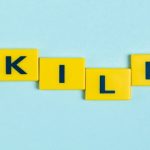IELTS Cue Card شماره 10 : توصیف مهارت عملی که یاد گرفتید
IELTS Cue Card شماره 10 :
یکی از سوالهای رایجی که در بخش اسپیکینگ آیلتس (IELTS Speaking) پرسیده میشه توصیف یک مهارت عملیه که یاد گرفتید. سوالی که از شما پرسیده میشه اینه:
IELTS Cue Card: Describe a practical skill you learned
برای پاسخ به این سوال باید سه موضوع را در نظر داشته باشید:
| این مهارت چه بود | What it was |
| کی آن را یاد گرفتی | When you learned it |
| چرا آن را یاد گرفتی | Why you learned it |
و اینکه توضیح دهید نسبت به آن مهارت چه حسی داشتید.
در ادامه با انواع سوال هایی که در بخش سوم پرسیده میشود آشنا می شویم و بعد چند نمونه جواب را برای هر بخش و هر سوال بررسی میکنیم و لغات مهم و کاربردی استفاده شده در جواب را با هم مرور می کنیم.
مطالعه ی IELTS Cue Card شماره 10 به شما کمک میکند تا خود را برای بخش اسپیکینگ آیلتس آماده کنید و دایره ی لغات مورد نیاز برای این بخش را افزایش دهید.
سوالات بخش 3
What is the most important practical skill in modern society?
مهم ترین مهارت عملی در جوامع امروزی چیست؟
What kinds of skills are difficult to learn?
یادگیری چه نوع مهارت هایی سخت است؟
What kinds of professions require practical skills?
چه نوع حرفه هایی به مهارت های عملی نیاز دارند؟
What are some special skills that people can learn?
چند مهارت خاص که افراد می توانند یاد بگیرند کدام است؟
پاسخ نمونه بخش 2
I learned to cook.
I used to hate cooking, and while I could make a few basic things, I wasn’t really any good. I’d had a stab at making some more complex recipes, but they never really worked out.
I think I was so bad because I’d never really been taught. In school we did have a few cooking classes, but nothing that really taught the skills I’d need to make anything other than a basic dessert or a simple lunch.
As a consequence I was horribly unprepared when I moved out on my own and had to fend for myself. I tried all kinds of things instead of cooking, such as eating out at fast food restaurants, ordering pizza, or seeing which microwave meal from the supermarket was the tastiest. I was never really satisfied, and after a while pizzas and burgers were just getting old.
I’ve always been a fan of taking classes online. I find I’m able to learn and practice something at my own pace. Sometimes classes at a local college can go too fast or can be at inconvenient times. So I did some research, got out my credit card, and paid for a class I thought was going to be worth it. Former students had written rave reviews about it and so I was excited to begin the class.
The teacher went through all the basics, from the essential equipment that all home chefs need, to basic knife skills. Every class left me more and more confident.
Over time I started to experiment and try making increasingly complex dishes. I can’t say everything has been a success, and I’ve certainly had my fair share of disasters in the kitchen, but that one online course has saved me from a lifetime of mediocre takeout and frozen meals.
لغات و اصطلاحات پاسخ نمونه
Had a stab at (idiom – چیزی را امتحان کردن)If you attempt to do something, even though you’re not likely to be successful, you’re said to have a stab at it.
Example: I’d never tried skiing before, but I had a stab at it while I was in France.
Work out (phrasal verb – باشگاه رفتن/ جواب دادن / یافتن)This phrasal verb can mean a few things. Most commonly it means to exercise, and people work out at the gym. It also is commonly used if you’re successful. It can also mean to figure out how to do something.
Example A: He works out at the gym every day.
Example B: If it doesn’t work out, you can always come back here.
Example C: I haven’t worked out how to do that yet.
As a consequence (phrase – در نتیجه آن)It’s used for saying that one thing is a result of something else.
Example: I’ve lived in France for a very long time, and as a consequence I can speak French fluently.
Move out (phrasal verb – نقل مکان کردن)If you move out of somewhere, it means you stop living in a particular home.
Example: I moved out three years ago, but sometimes I miss that apartment.
Fend for yourself (phrasal verb – تنهایی از پس کارها بر آمدن)If you fend for yourself you take care of and provide for yourself without depending on anyone else.
Example: When I moved to Boston I had to fend for myself for the first time in my life.
Eat out (phrasal verb – بیرون غذا خوردن)Simply means to eat at a restaurant instead of at home.Example: When I lived in Spain, I used to eat out all the time.
Get old (verb – قدیمی شدن)If something gets old it becomes annoying, boring, or undesirable because you’ve done it too many times.Example: Eating mac and cheese every day gets old really fast.
Worth it (adjective – ارزشش را داشتن)If something is worth it, it’s worth the cost or work involved to attain it. The benefits will outweigh the costs.Example: Getting up early to jog is tough but worth it.
Rave review (noun – نقد خیلی مثبت)A rave review is when someone writes or talks about something really positively, such as a product, service, book, TV show, movie, etc. They’re really happy with whatever they’re reviewing.
Example: The movie received rave reviews.
Your fair share (idiom – سهم مناسب خود)This phrase is used to indicate an amount of something that you deserve, whether it’s a good or bad thing.
Example: Leave the rest of the pizza for other people. You’ve had your fair share.
Mediocre (adjective – معمولی)Something that’s not very good.
Example: Parents don’t want their kids going to mediocre schools.
پاسخ نمونه بخش 3
What is the most important practical skill in modern society?
مهم ترین مهارت عملی در جوامع امروزی چیست؟
Computer literacy is, hands down, the most important skill that everyone should know.
There are a lot of older people that didn’t keep up with the times and as a result they were left behind. They ended up relying on friends and family to do basic things, such as ordering something online because they lacked the skills and confidence to do it themselves.
Just about every job requires the use of a computer, and those that struggle are going to have their employment opportunities severely limited.
Even when it comes to fun and recreation, people nowadays use computers. Mobile phones are little pocket-sized computers, and whether it’s watching an online video or chatting with friends, and it’s how people choose to pass the time when they’re bored.
لغات و اصطلاحات پاسخ نمونه
Computer literacy (noun – دانش کامپیوتر)If you’re computer literate, you’re able to use computers well.
Example: It’s important for old people to be computer literate if they want to keep up with modern society.
Hands down (phrasal verb – بدون شک)It’s a phrase that means without any doubt.
Example: Prague is hands down one of the prettiest cities I’ve ever visited.
Keep up with the times (idiom – با زمان جلو آمدن)To stay up to date with society and to modify your behavior or beliefs to reflect what is current.
Example: My grandpa doesn’t have a cellphone because he doesn’t care about keeping up with the times.
As a result (idiom – در نتیجه)It’s a phrase used to mean that something happened because of something else.
Example: He sprained his wrist and, as a result, will not be playing in the match on Sunday.
Left behind (phrasal verb – عقب ماندن)If you’re left behind, other people have improved or progressed much faster than you.
Example: If you don’t learn how to use modern-day technology, you’ll be left behind.
Pass the time (idiom – وقت گذراندن)If you do something to stay busy while waiting for something, you’re passing the time.
Example: I watched videos on my phone to pass the time while waiting for my flight.
What kinds of professions require practical skills?
یادگیری چه نوع مهارت هایی سخت است؟
I’d say anything that requires making something. Manual laborers are the quintessential example. They need to be able to make things with their hands, whether they’re a bricklayer or a plumber, they need a lot of interrelated practical skills.
Chefs and bakers are another example. The entire foundation of their job relies on a set of practical skills.
I think these people work especially hard, and the jobs they can do can be backbreaking. They will also need to keep developing their skills and improving their craft if they want to stay up to date and excel in their field, just like a knowledge worker would.
لغات و اصطلاحات پاسخ نمونه
Manual laborer (noun – کارگر)Someone who works with their hands and doing very physical work.
Example: My neighbor is a manual laborer. She works in construction.
Quintessential (adjective – اصیل)The most perfect or most typical example of something.
Example: She is quintessentially American.
Bricklayer (noun – آجرچین)A person who builds walls or buildings using bricks, especially as a job.
Example: There are several bricklayers building a house next to mine right now.
Interrelated (adjective – به هم پیوسته)Things that are connected in some way and affect each other because of this connection.
Example: Whether I ate breakfast and my mood are interrelated.
Backbreaking (adjective – کمرشکن)Something that needs a lot of hard, physical effort that makes you feel extremely tired.
Example: Digging a hole in the ground with just a shovel is backbreaking.
Craft (noun – حرفه و مهارت)The skill needed for a particular profession is called a craft.
Example: The old ladies that made patchwork quilts were a master of their craft.
Up to date (adjective – به روز)If something is up to date, it is modern, uses the latest technology, or has the most recent information. If you stay up to date, you make sure you know how to use this technology, learn this information, or anything else to make sure you are current.
Example: Every six months I take a week off to go to a training course so I can stay up to date.
Excel (verb – در چیزی مهارت داشتن)To excel at something is to do it extremely well.
Example: She always excelled at languages.
Field (noun – رشته)A field is a subject that you study, or a type of work that you do.
Example: My sister is a chemist working in the field of drug research.
Knowledge worker (noun – کسی که با داده سر و کار دارد)An employee whose job involves developing and using specialized knowledge rather than making goods or performing services.
Example: Many people are knowledge workers, including doctors, lawyers, engineers, and programmers.
What are some special skills that people can learn?
چند مهارت خاص که افراد می توانند یاد بگیرند کدام است؟
I think one that would benefit a lot of people is learning how to sell. Pretty much all of life is sales in some form, whether it’s convincing someone to go on a date with you, or selling an employer on the benefits of giving you a raise.
I think public speaking and general communication skills would go well with having strong sales skills. Knowing how to talk to people, whether that’s a one-on-one conversation, or talking to an auditorium full of people, knowing how to communicate clearly and concisely can have significant benefits on one’s life.
Perhaps another is basic accounting and financial literacy. Being able to manage money and make key financial decisions can help people become more financially secure and prepared for the future. I think a lot of people don’t understand the basics of money and aren’t prepared for a rainy day or their retirement.
لغات و اصطلاحات پاسخ نمونه
One-on-one (adjective – چیزی که فقط بین دو نفر اتفاق می افتد)Something that happens between only two people.
Example: I had a one-on-one interview at that company I sent my resume to.
Auditorium (noun – سالن اجتماعات )A large room or building used for meetings, lectures, or public performances.
Example: The lecture will be held in the auditorium.
Concisely (adverb – بطور دقیق)If you say something in a short and clear way, you’ve said it concisely.
Example: The information was presented clearly and concisely.
Financial literacy (noun – سواد مالی)If you’re financially literate, you’re able to understand basic financial topics, as well as the basic principles of business.
Example: Financial literacy isn’t taught in schools, and so those graduating high school have very little understanding about how money works in the real world.
Key (adjective – کلیدی و مهم)Something that’s key is very important and has a lot of influence on other people or things.
Example: She was a key figure in the art world.
Financially secure (idiom – از لحاظ مالی ایمن بودن)If you’re financially secure you have enough money to live on and don’t have to worry about money.
Example: It’s important to save enough money for retirement so you can be financially secure.
Rainy day (idiom – روز مبادا)A rainy day is a time when you might need some money to cover some unexpected expenses. It’s usually a time of need or trouble, and people often talk about saving for a rainy day.
Example: She’s saved some money for a rainy day.
اگر مطالب IELTS Cue Card شماره 10 برایتان مفید بود و هنوز درمورد بخش اسپیکینگ آیلتس یا سایر بخش های این آزمون سوال یا نیاز به تمرین بیشتر داشتید، پیشنهاد میکنم در دورهی خصوصی تضمینی ایلتس شرکت کنید تا با بهره مندی از کمک های اساتید باتجربه ی آیلتس، نمره ی ایده آل خود را از این آزمون سرنوشت ساز بدست آورید.
اگر هم قصدتان توانایی مکالمه به زبان انگلیسی است به شما شرکت در دورهی مکالمه زبان انگلیسی آکادمی آنلاین 24talk را پیشنهاد میکنیم که با تمرکز بر روی تقویت مهارت مکالمه، دورههای خصوصی و نیمه خصوصی در سطوح مختلف برای شما زبان آموزان عزیز ارائه می کند.











